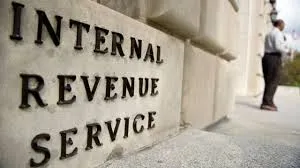
In particular, the IRS concluded that the employer could make a non-elective contribution to its 401(k) plan, where the amount of the non-elective contribution would be based on an employee’s total student loan repayments and would be contributed to the plan in lieu of the matching contributions that would otherwise be made to the plan had the employee made pre-tax, Roth 401(k) and/or after-tax contributions. The student loan benefit program detailed in the PLR includes a number of key features:
- Participation in the student loan repayment benefit program is voluntary. If an employee signs up to participate, then for each payroll period during which the employee makes sufficient student loan repayments, the employee is eligible to receive a non-elective employer contribution.
- The non-elective employer contribution is equal to the matching contribution the employee would otherwise receive if the employee made pre-tax, Roth 401(k) and/or after-tax contributions to the plan during the same payroll period.
- The student loan repayment benefit effectively replaces the employer matching contribution for an employee who chooses to participate in the program. An employee who signs up for the program is not eligible to receive regular matching contributions under the plan while the employee is participating in the student loan repayment program. However, the employer provides a year-end true-up match to ensure that if an employee fails to make sufficient student loan repayments to receive the full student-loan-based non-elective employer contribution for any payroll period, but does make pre-tax, Roth 401(k) and/or after-tax contributions during the same period, the employee will be eligible to receive a true-up matching contribution. The true-up matching contribution is equal to the regular matching contribution the employee would otherwise be entitled to receive for such payroll period.
Because employers are constantly looking for new ways to attract and keep employees, the ruling may cause employers, particularly employers with a young and educated workforce, to consider offering a student loan benefit as part of their retirement program. Also, while legal and technical challenges still remain, some providers will likely consider establishing and marketing student loan repayment programs in 401(k) plans. Interested plan sponsors will want to keep in tune to the marketplace and work with their advisors and ERISA counsel if they decide to consider implementing such programs.


